Winning the Breast Cancer Fight
To mark Breast Cancer Awareness Month in October, Duke colleagues share survivorship stories
Robin Harris experiences life a little differently now.
Since her bout with breast cancer last year, Harris, an Accounting Supervisor with Duke University Plant Accounting, said the world seems greener, sunshine is brighter, love from family and friends feels warmer and birthday celebrations are sweeter.
“It means another year you get to be alive,” said Harris, who turned 60 in May.
The American Cancer Society reports that about 1 in 8 American women will develop breast cancer in their lifetime.
Currently, there are more than 4 million breast cancer survivors living in the United States.
For many of those survivorship stories, regular mammograms played a role in the positive outcomes.
Duke Associate Professor of Surgery and Population Health Sciences Dr. Jennifer Plichta, a breast surgeon and breast cancer researcher, said that early detection is a vital piece of successful treatment.
This year, the United States Preventative Services Task Force updated its screening guidelines, recommending that women at average risk get screened every other year from age 40 to 74.
“Our goal is to detect cancer as early as possible so we can do as little as possible to get our patients back to focusing on what matters most to them,” Plichta said. “Getting mammograms is part of that. If you want to detect things early, then we’ve got to do imaging.”
As we mark Breast Cancer Awareness Month in October, a time to promote screening and prevention of the disease, breast cancer survivors, like Harris, share their stories.
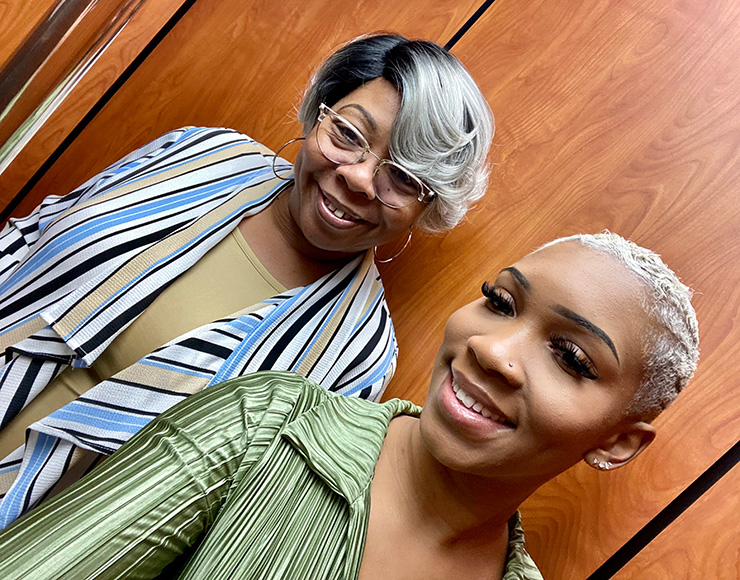

Reaching the Bright Side
Robin Harris’ survivorship story began with her annual mammogram in October of 2022 at Duke Cancer Center. A few days later, she got a call informing her that Stage 1 cancer had been found in her left breast. With fear and anxiety swirling in her mind, Harris was told that a silver lining was that the cancer had been caught in a very early stage.
According to the National Breast Cancer Foundation, when caught in its earliest stages, before it has spread, the 5-year relative survival rate for breast cancer is 99%.
Her doctor gave her two options: surgery to remove one breast followed by chemotherapy, radiation and years of medication, or a double mastectomy that would wipe out the cancer in one procedure.
“That wasn’t a hard decision,” said Harris, who had the bilateral mastectomy in February 2023.
There were plenty of dark moments that winter. Despite the assurances from her Duke doctors that her cancer could be treated, it was hard to keep her mind at ease.
But during that time, there were also bright spots she still cherishes.
During treatment, Harris’ daughter, Kayla, came to live with her in Durham to look after her. Her fellow congregants at Destiny International Ministries surrounded her with prayer and encouragement.
And her Duke colleagues brought her meals and donated time off through the Kiel Program.
And the message she received from her surgeon, Dr. Gregory Georgiade, on her Duke MyChart a few days after her mastectomy still leaves her overjoyed.
Telling her that the procedure was a success and that she needs no more treatment, Georgiade said of her cancer: “it’s all gone.”
“After you go through something traumatic like that, your whole world changes,” said Harris, who is now powered by a mindset of joyful gratitude. “You see things differently, you see people differently. You’re not sweating the little stuff anymore. Life just isn’t taken for granted.”
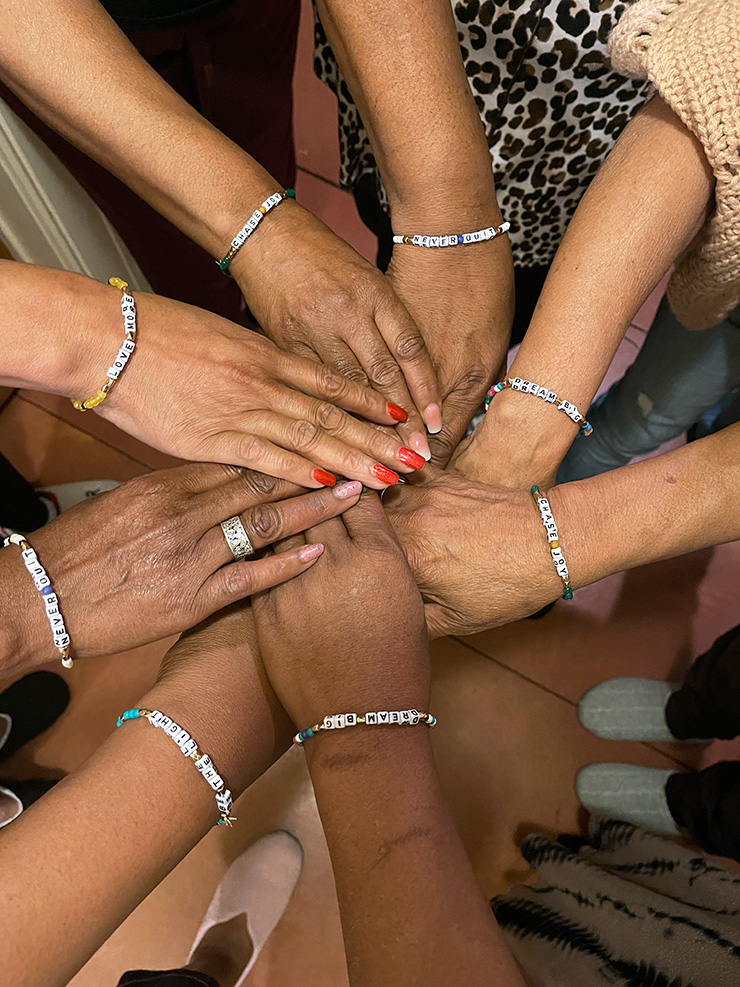
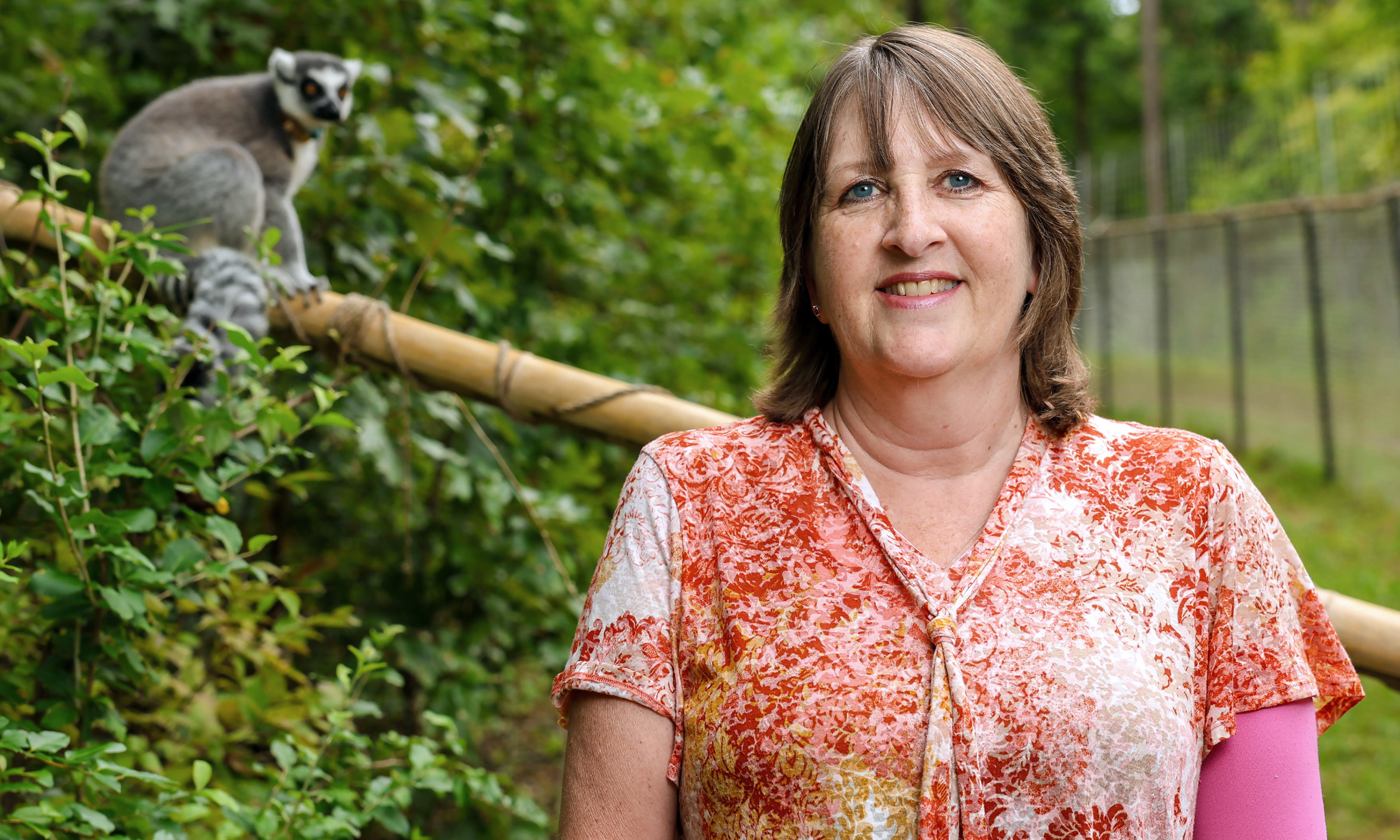
A Lump that Wouldn’t Go Away
Melissa Dean was biking on vacation in Florida in September 2022 when she fell and landed hard against her handlebars. The resulting lump and bruise on her chest was painful for about a week.
When the lump on her breast didn’t go away after about three weeks, she realized she should make a doctor’s appointment.
Dean, the Business Manager at Duke Lemur Center, had not had her annual mammogram since 2019, letting appointments lapse during the pandemic.
Her doctor quickly progressed her from a mammogram to an ultrasound, where she did some self-diagnosis.
“I've seen enough ultrasounds with lemurs, and I've had two kids that I could see it,” said Dean, 59. “I could see that it had jagged edges, and I could see that it looked relatively large, so I knew that it was not something to wait around with.”
What she saw was diagnosed as Stage 2 triple-negative breast cancer. The American Cancer Society says it is “an aggressive type of invasive breast cancer” that grows and spreads quickly.
She needed 12 weeks of chemotherapy, surgery, then oral chemotherapy medication and radiation. The lengthy and arduous treatment was made easier when a Lemur Center co-worker sometimes accompanied her to appointments, others made meals for her on treatment days and everyone distracted her from falling down rabbit holes as she continued to work.
“I was around other people and I didn't have the opportunity to go home and wallow in, ‘Oh my gosh, what's going to happen to me?’” Dean said. “I got through it by laughing and having a positive outlook – and not letting it rule your life, as best as possible.”
Dean also credits her Duke Health physicians, who could easily confer and communicate, as they laid out the treatment plan and told her to take everything one step at a time.
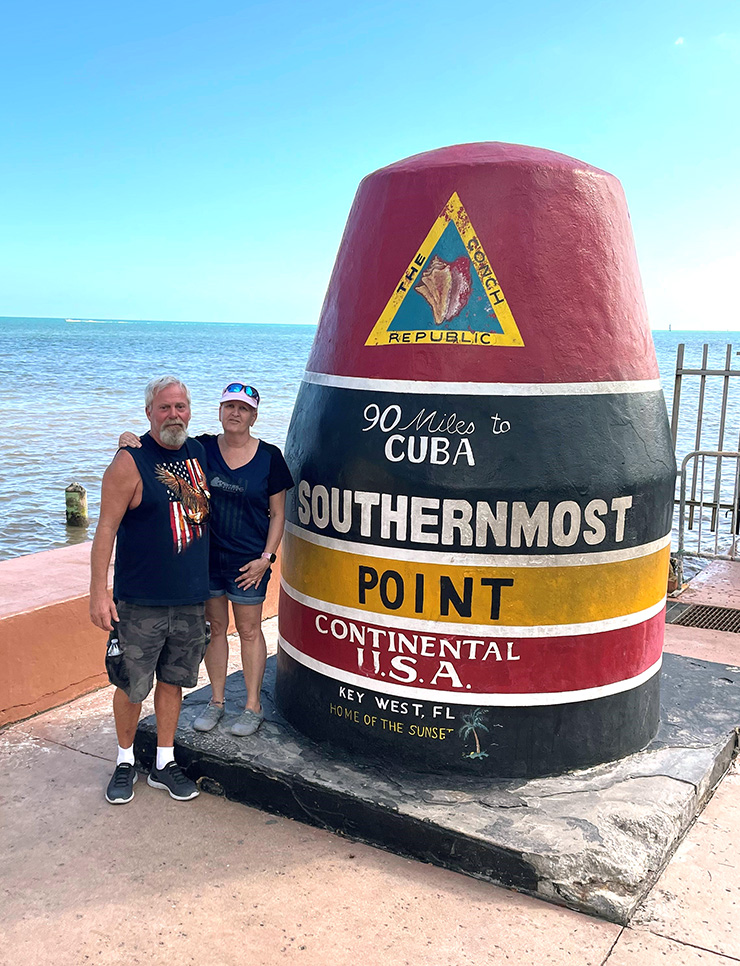
It’s been seven months since Dean completed her oral chemotherapy and four months since she had her port removed. She considers her breast cancer defeated – and tells her story to as many people as possible.
“The more it's talked about, the more this stigma goes away – and then more women will actually go out and make sure they get their mammogram annually,” Dean said.

Just in Time
For several years, getting a mammogram wasn’t high on the priority list of Karen McGowan. A busy mom and nurse practitioner at Duke Raleigh Hospital’s Interventional Radiology Department, she’d had a mammogram in her 30s as part of fertility treatments, and it showed nothing of concern. So she went years without getting another.
“I just didn’t think about it,” said McGowan, now 50.
But in January 2021, McGowan, then 46, decided to get a mammogram. With the imaging clinic just a short walk from her workspace on the first floor of Duke Raleigh Hospital, she could fit a mammogram easily into her day.
“It was just a kind of spur of the moment thing,” she said.
The 2021 mammography appointment, made on a whim, found a small, cancerous mass in McGowan’s right breast.
“I had to step out of being a medical provider and into being a patient,” McGowan said. “I just put my faith in all of the doctors and said ‘You tell me where to go and what to do and I’m going to show up and do it.’”
McGowan’s story had a happy ending. After a lumpectomy and radiation treatments, her cancer was gone. She’s now nearing the home stretch of the five-year period in which she needs mammograms and MRIs every six months to ensure her cancer doesn’t return.
She knows that if she’d waited much longer to get her mammogram, things could have been very different.
“If it was an angel that whispered it in my ear to get it done, I don’t know,” McGowan said about her mammogram appointment. “But now I’d shout it from the mountaintop. Get it done. It’s so easy.”
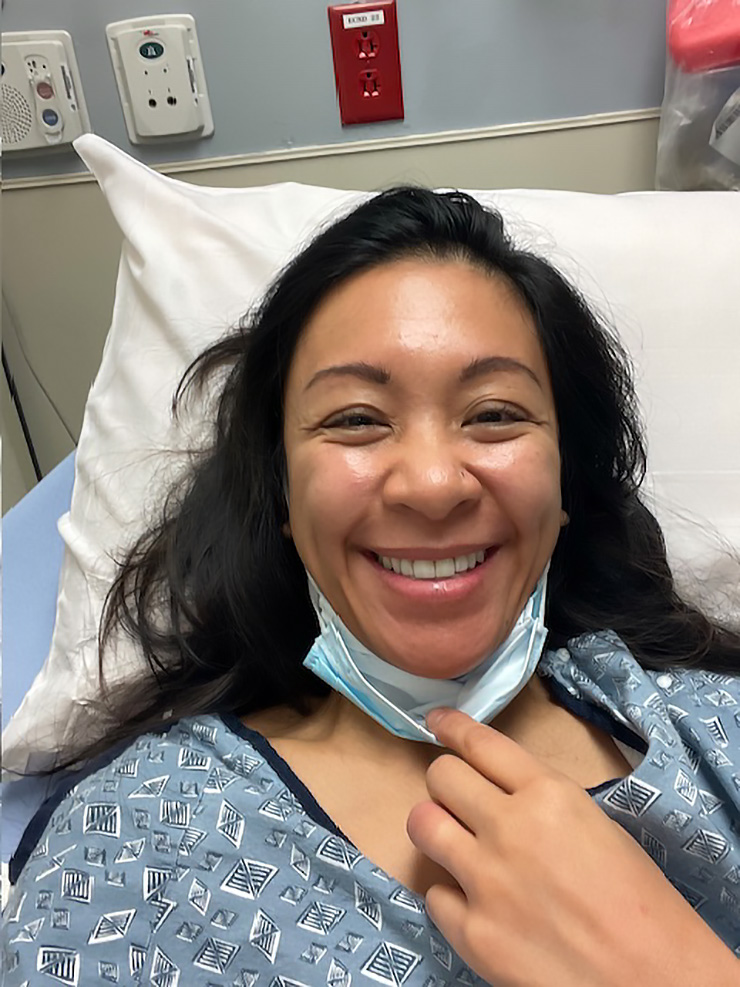
Hear the story of the Duke Lemur Center's Melissa Dean and her breast cancer fight.
Get the Latest Breast Cancer Insights
The “What’s Best for Breasts?” free community health event will take place from 8 a.m.-3 p.m. on Saturday, Oct. 5, at the Trent Semans Center Great Hall and will feature expert presentations and interactive information sessions about the latest breast cancer treatments, testing and resources.
Send story ideas, shout-outs and photographs through our story idea form or write working@duke.edu.
Follow Working@Duke on X (Twitter), Facebook and Instagram and subscribe on YouTube.